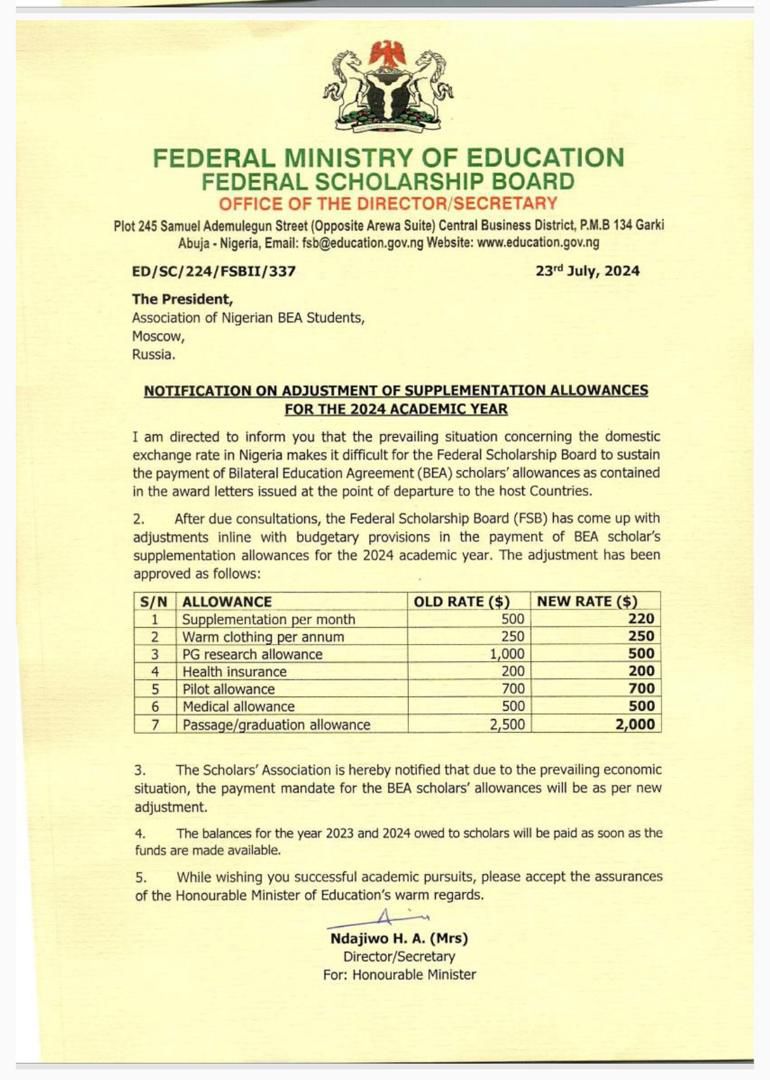The Federal Government of Nigeria has recently announced a significant cut in the allowances provided to Nigerian scholars studying abroad under the Bilateral Education Agreement (BEA) scholarships. This decision comes as a response to the ongoing economic difficulties facing the country. The allowances have been reduced by 12.7%, a move that affects students in countries such as Russia, Morocco, Algeria, and several others.

This reduction was formally communicated in a memo signed by Ndajiwo H.A., the Director of the Federal Scholarship Board, on behalf of the Minister of Education, Prof. Tahir Mamman. The BEA scholarships are designed to foster educational exchange between Nigeria and various partner countries, enabling Nigerian students to pursue higher education abroad in fields like natural sciences, engineering, medicine, and social science.
The Federal Scholarship Board, under the Federal Ministry of Education, oversees these scholarships. Typically, the scholarships cover a range of expenses, including supplementation allowances, warm clothing allowances, health insurance, and research grants for postgraduate students.
However, students have reported long delays in the disbursement of these funds, with some going as long as 11 months without receiving their stipends. This has led to severe financial hardships, affecting their academic performance and daily living conditions.
Students in various countries, including Russia, China, and Morocco, have expressed their distress over the non-payment and now the reduction of their allowances. Many have resorted to taking up part-time jobs or relying on family support to make ends meet. This financial strain has also led to issues with accommodation and basic living expenses. In some instances, students have faced eviction threats due to unpaid rent, further compounding their difficulties.
The BEA scholarships are part of Nigeria’s efforts to build a knowledgeable workforce by enabling students to study abroad and gain international exposure. The countries participating in the BEA program with Nigeria include Algeria, China, Cuba, Egypt, Hungary, Japan, Mexico, Morocco, Romania, Russia, Serbia, South Korea, Tunisia, Turkey, and Ukraine. These scholarships are awarded for undergraduate, master’s, and Ph.D. programs, and students are generally required to study in the local language of the host country, except in Hungary.
In light of the recent cuts, students and various stakeholders are calling on the Nigerian government to reconsider the decision and ensure timely and adequate support for scholars abroad. They argue that reducing the allowances will only exacerbate the existing challenges faced by these students, who are already struggling to cope with the high cost of living in foreign countries.




